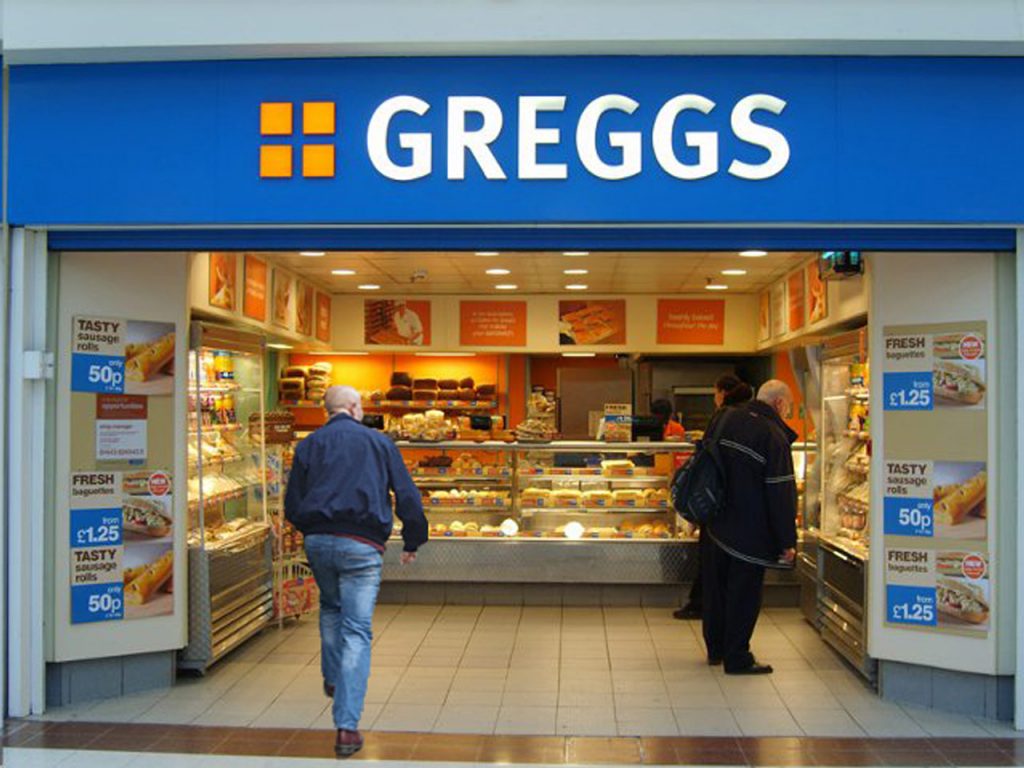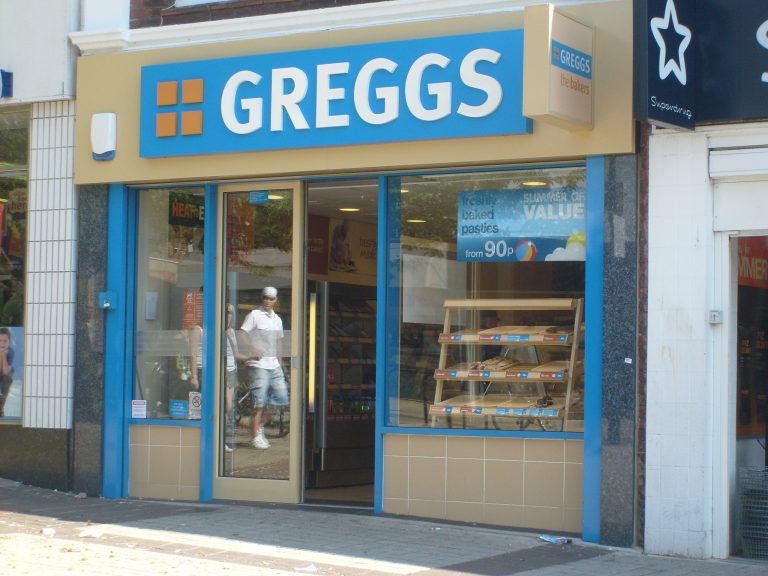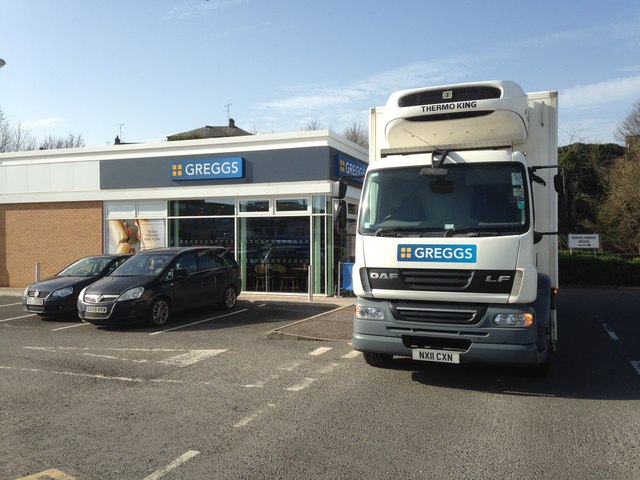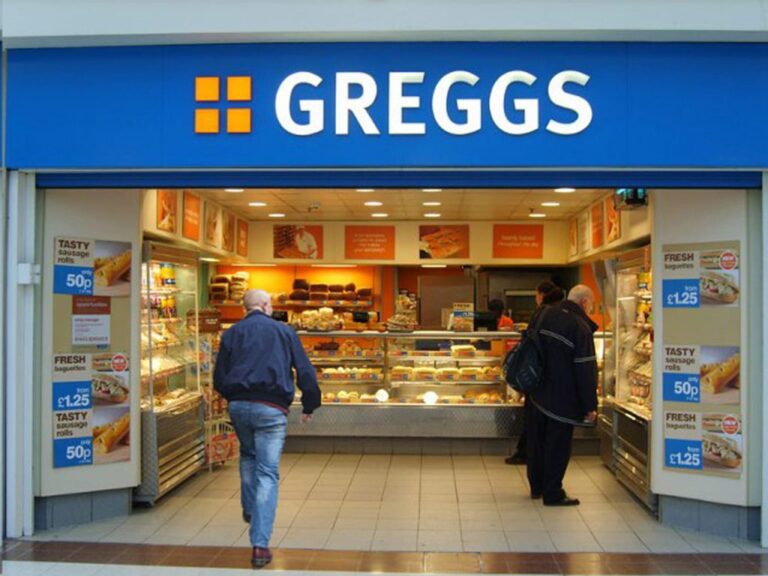Greggs Plc (LON:GRG) has released its latest sustainability report – The Greggs Pledge – marking further progress against its five-year sustainability plan.
Launched in 2021 and aligned with the ambitions of the UN Sustainable Development Goals (UN SDGs), The Greggs Pledge focuses on ten commitments to help make the world a better place by the end of 2025, and beyond, centred on three key pillars:
1. Building stronger, healthier communities
2. Making the planet safer
3. Becoming a better business.
Greggs made significant progress in tackling food insecurity this year, marking the milestone opening of the 1,000th Greggs Foundation Breakfast Club, which now provides free, nutritious breakfasts to over 75,000 schoolchildren across the UK, every school day. The Company also reached the milestone of donating the equivalent of one million meals to FareShare during its ten-year partnership and expanded its network of Outlet shops to 38 locations.
Other key sustainability efforts saw Greggs secure a top four ranking among 150 of the world’s largest food companies in the Business Benchmark on Farm Animal Welfare (BBFAW), as well as introducing industry-first heat-resistant, recycled PET (rPET) hot drink lids.
Roisin Currie, Chief Executive at Greggs commented:
“We’re extremely proud of The Greggs Pledge, which focuses our business on making meaningful impact where it matters most. We’re delighted to be on track with the majority of our targets and remain committed to evolving our initiatives based on new insights and stakeholder priorities.
Looking ahead, we are now shaping the next phase of The Greggs Pledge to drive even greater impact. We want to build on the progress we have made and focus on redefining our goals for the next five years. Our full roadmap will be outlined in our next Sustainability Report, set for release in 2026.”
Greggs has assessed the progress made during 2024 against its sustainability targets and has set out clear targets to achieve by the end of 2025:
1. By the end of 2025: Open 1,000 school Breakfast Clubs, providing 70,000 meals each school day
· Progress in 2024: 1,015 Breakfast Clubs fed more than 75,000 children every school day.
· 2025 target: Maintain support for the schools in the Greggs Foundation Breakfast Club programme ahead of the transition to universal provision announced by the Government.
2. By the end of 2025: Create 25% less food waste than in 2018 and continue to work towards 100% of surplus food going to those most in need
· Progress in 2024: Greggs further reduced the cost of manufacturing waste to 0.2% of sales and increased redistribution of unsold food to 45%. Greggs successfully trialled light van collections of surplus food.
· 2025 target: Greggs will increase unsold food redistribution to 47% and will maintain cost of manufacturing waste at 0.20% of sales.
3. By the end of 2025: Have 50 Outlet shops providing affordable food in areas of social deprivation
· Progress in 2024: Greggs has 38 Outlet shops.
· 2025 target: Greggs plans to open seven Outlet shops to take the total number to 45.
4. By the end of 2025: 30% of the items on Greggs’ shelves will be heathier choices
· Progress in 2024: Maintained over 30% of its range as ‘Healthier Choice’ products.
· 2025 target: Greggs will continue to maintain its ranging principles to ensure 30% of its offering are ‘Healthier Choice’ items.
5. By the end of 2025: Progress towards Net Zero target by using 100% renewable energy across all of operations
· Progress in 2024: 60% of the gas used across operations is from renewable sources. We converted our Enfield distribution depot to use hydrotreated vegetable oil (HVO) as a diesel replacement, meaning we covered over two million miles using a renewable fuel option. We developed our policy to deal with non-renewable electricity usage in serviced locations.
· 2025 target: Increase HVO use across our fleet to 30% of fuel requirement.
6. By the end of 2025: 25% of shops will feature elements from Greggs’ Eco-Shop ‘shop of the future’ design
· Progress in 2024: Over 700 shops (27% of estate) feature Eco-Shop elements.
· 2025 target: Continue to roll out existing Eco-Shop elements across 30% of the estate.
7. By the end of 2025: Use 25% less packaging, by weight, than in 2019 and any remaining packaging will be made from material that is widely recycled
· Progress in 2024: All but two (98.3%) items of our own brand packaging can be more easily recycled. We reduced the amount of packaging used within our Supply Chain by moving to bulk supply or reusable containers, where options were available.
2025 target: Move remaining own brand packaging to be ‘easily recyclable‘.
8. By the end of 2025: Our workforce will reflect the communities we serve
· Progress in 2024: Our core development programmes, aimed at supporting our potential future management colleagues, are representative of the ethnic diversity in our regional talent pools.
· 2025 target: Complete National Equality Standard (NES) reassessment and successfully maintain accreditation.
9. By the end of 2025: Launch a Responsible Sourcing Strategy and report annually on progress towards its targets
· Progress in 2024: 100% declared soy in our own operations is certified as sustainable. We are working with meat, egg and dairy suppliers to move all soy in animal feed to be from sustainable sources by the end of 2025. We are using wheat from a regenerative farmed source in our wholemeal bread production.
· 2025 target: Continue to work with meat, egg and dairy suppliers to move 100% of soy in animal feed to sustainable sources.
10. By the end of 2025: Secure and maintain Tier 1 in the BBFAW Animal Welfare standard
· Progress in 2024: We further improved our chicken welfare standards, with 86.6% reared at a stocking density of less than or equal to 30kg/m2 and the remainder at less than or equal to 38 kg/m2. We published and implemented our Chicken Welfare Standard within our Farm Animal Welfare Standard. We secured a top four ranking among 150 of the world’s largest food companies in the Business Benchmark on Farm Animal Welfare (BBFAW).
· 2025 target: Ensure stocking densities of a maximum of 30kg/m2 for 100% of our chicken sourcing.








































